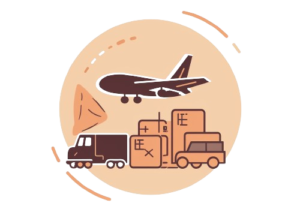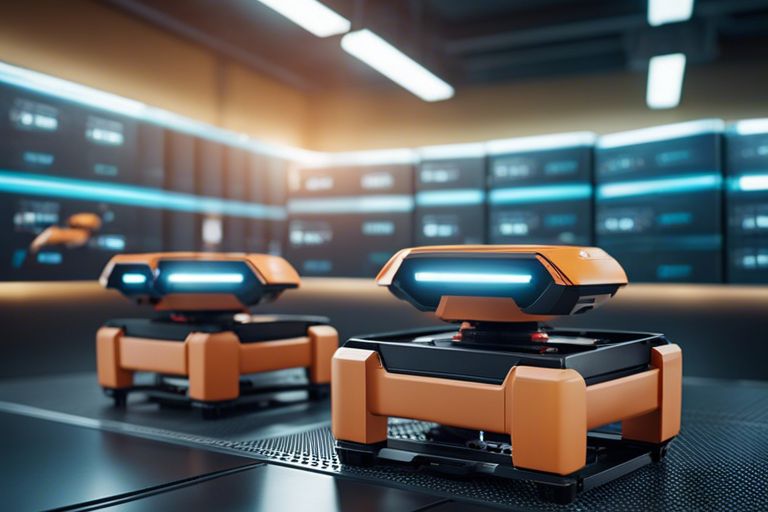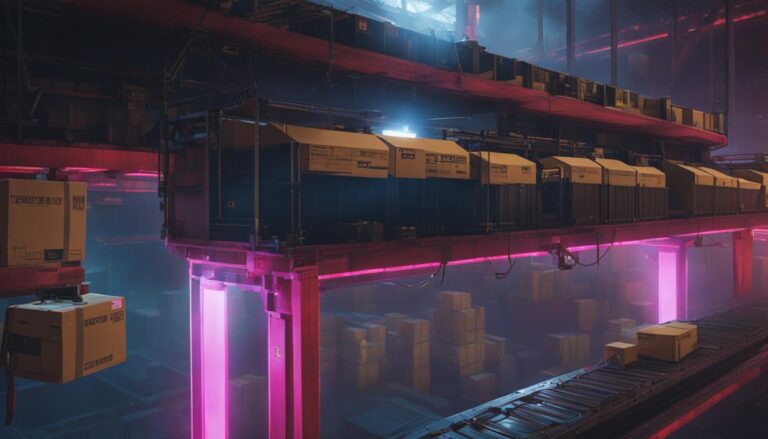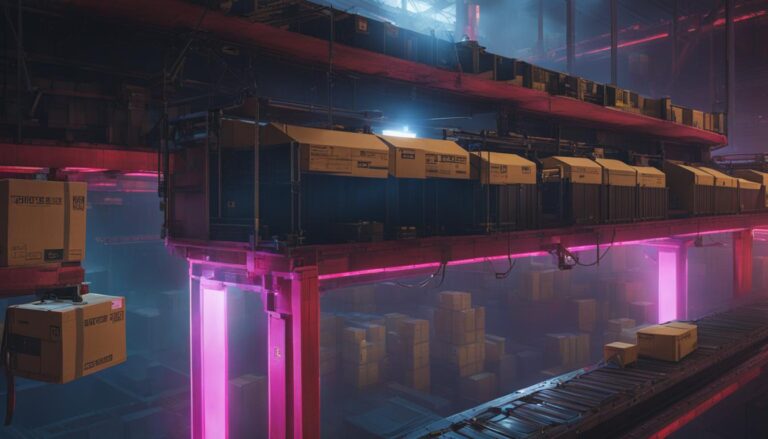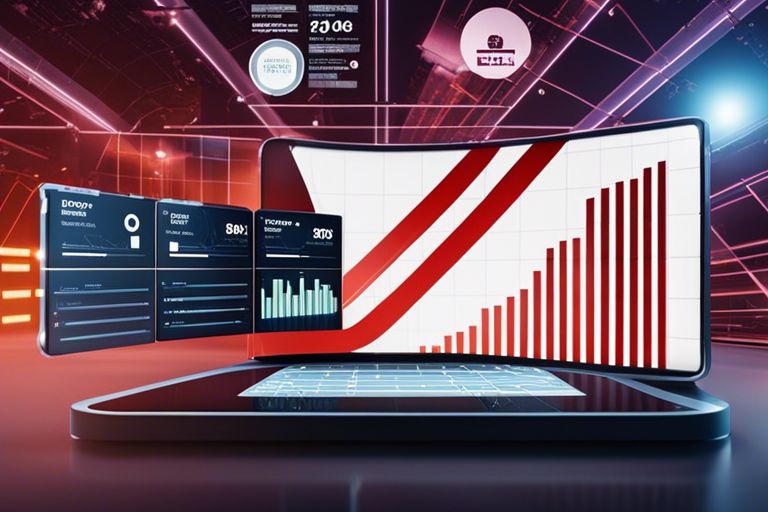Can AI Technology Enhance Operational Speed In Dropshipping Logistics?
Operational Speed plays a critical role in the efficiency of dropshipping logistics. Leveraging AI technology has the potential to significantly enhance the operational speed in this competitive industry. By automating processes such as order processing, inventory management, and route optimization, AI can reduce human error and improve the overall speed of fulfilling orders. This blog post will investigate into how AI technology can be a game-changer in the world of dropshipping logistics by discussing its advantages and the challenges it may bring.
Key Takeaways:
- Automation: AI technology can automate various processes in dropshipping logistics, including order processing, inventory management, and shipment tracking.
- Efficiency: By analyzing data and predicting demand, AI can help in optimizing routes, reducing lead times, and streamlining overall operations.
- Decision-making: AI can assist in making real-time decisions by providing valuable insights based on data analysis, ultimately enhancing operational speed in dropshipping logistics.
- Error Reduction: AI’s ability to detect anomalies and errors can minimize mistakes in order fulfillment, leading to quicker and more accurate deliveries.
- Customer Experience: Faster order processing and delivery times facilitated by AI technology can result in improved customer satisfaction and loyalty in dropshipping logistics.
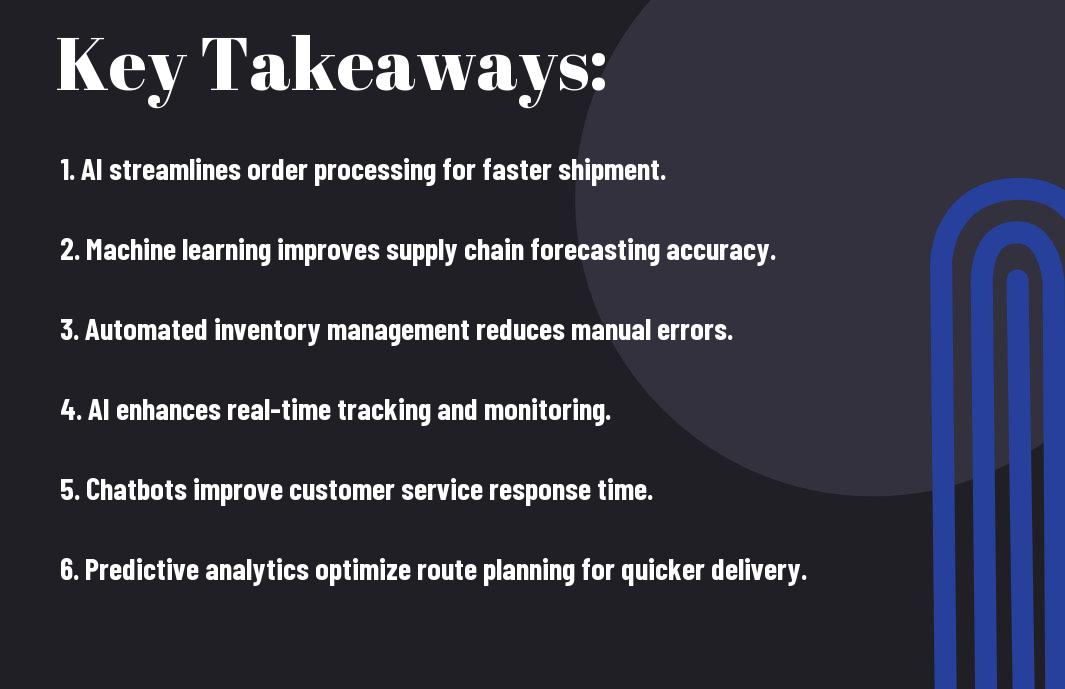
The Impact of AI on Operational Efficiency
Assuming you are looking to streamline your dropshipping logistics operations, leveraging AI technology can bring about significant enhancements in operational speed and efficiency. An insightful guide on Leveraging AI in Dropshipping: Strategies for Operational Enhancement can help you understand how AI can revolutionize your logistics processes.
Real-time Inventory Management
Management of inventory in real-time is crucial for dropshipping businesses to prevent stockouts and optimize order fulfillment. AI technology can analyze trends, predict demand, and automate inventory replenishment processes. By utilizing AI algorithms, businesses can ensure accurate stocking levels, reduce excess inventory costs, and enhance customer satisfaction through efficient order processing.
Moreover, AI-powered systems can integrate with various sales channels and suppliers, providing a centralized view of inventory levels across the supply chain. This real-time visibility enables businesses to make data-driven decisions, anticipate market fluctuations, and maintain optimal inventory levels to meet customer demands effectively.
Route and Delivery Optimization
With AI, businesses can optimize delivery routes based on factors such as traffic conditions, weather forecasts, and customer preferences. Route optimization algorithms can calculate the most efficient routes for multiple orders, minimizing delivery time and costs. By leveraging AI for delivery scheduling and vehicle routing, businesses can enhance operational efficiency and ensure timely deliveries to customers.
Any delays or disruptions in the delivery process can impact customer satisfaction and loyalty. By implementing AI-powered solutions for route and delivery optimization, businesses can mitigate risks, improve delivery accuracy, and provide a seamless customer experience. Investing in AI technology for logistics operations can lead to substantial improvements in operational speed and efficiency, giving businesses a competitive edge in the dynamic e-commerce landscape.
AI-Driven Customer Experience Enhancement
Despite the complexities of dropshipping logistics, AI technology offers a promising solution to enhance operational speed and efficiency. One area where AI has shown significant potential is in improving customer experience through advanced solutions.
Personalized User Experiences
Customer personalization is key to building brand loyalty and increasing sales in the dropshipping business. With AI-powered tools, businesses can analyze customer data in real-time to provide personalized product recommendations, tailored promotions, and customized shopping experiences. This level of personalization not only enhances the overall customer experience but also leads to higher conversion rates and increased customer satisfaction.
Moreover, AI algorithms can predict customer behavior and preferences based on past interactions, enabling businesses to offer targeted marketing campaigns and improve inventory management. By leveraging AI for personalized user experiences, dropshipping companies can stay ahead of the competition and drive long-term growth.
Automating Customer Support
Customer support plays a crucial role in the success of any dropshipping business. AI technologies such as chatbots and natural language processing have revolutionized customer service by automating and streamlining the support process. These AI-driven solutions can instantly resolve customer queries, provide 24/7 assistance, and offer personalized recommendations, all without human intervention.
It is essential for dropshipping companies to invest in AI-powered customer support systems to improve response times, reduce customer wait times, and enhance overall satisfaction levels. By automating customer support, businesses can focus on core operations while delivering exceptional service to their customers.
Overcoming Dropshipping Challenges with AI
To Boost Your Dropshipping Business with AI technology has revolutionized the way dropshipping businesses operate, but challenges still exist. Fortunately, Artificial Intelligence (AI) can help mitigate these challenges and enhance operational speed in dropshipping logistics. Let’s explore how AI can address some common obstacles faced in the dropshipping industry.
Mitigating Supply Chain Disruptions
On-time delivery is crucial in dropshipping, but supply chain disruptions can lead to delays and dissatisfied customers. AI can analyze real-time data to predict potential disruptions, enabling proactive decision-making. By utilizing AI-powered algorithms that assess various factors like weather conditions, traffic patterns, and supplier reliability, businesses can ensure timely deliveries and maintain customer satisfaction.
Furthermore, AI can optimize inventory management by forecasting demand accurately. This predictive capability helps prevent stockouts and overstocking, leading to improved operational efficiency and cost savings. By automating reorder processes based on AI-driven insights, dropshipping businesses can maintain optimal inventory levels and minimize the impact of supply chain disruptions.
Addressing Quality Control Issues
Addressing quality control issues is paramount in dropshipping to uphold brand reputation and retain loyal customers. AI technologies can be employed to monitor product quality through automated inspections and anomaly detection. By analyzing product images and specifications, AI algorithms can detect defects or deviations from standards with high accuracy, ensuring that only high-quality products are shipped to customers.
The integration of AI-powered quality control systems not only enhances product quality but also streamlines the inspection process. Automated quality checks reduce the likelihood of human error and enable dropshipping businesses to maintain consistent quality standards across their product range. With AI technology, businesses can proactively identify and address quality issues before they escalate, safeguarding their reputation and fostering customer trust.
Scaling Dropshipping Businesses with AI
Data-Driven Decision Making
Unlike traditional business models, dropshipping heavily relies on efficient logistics and supply chain management. Dropshipping businesses can leverage AI technology to analyze large datasets and derive actionable insights for better decision-making processes. By implementing AI algorithms, businesses can predict trends, forecast demand, optimize pricing strategies, and streamline inventory management.
Data-driven decision making allows dropshipping businesses to optimize their operations by identifying patterns and trends that might otherwise go unnoticed. AI technology can provide real-time analytics, enabling businesses to adapt quickly to changing market conditions and consumer behavior. By harnessing the power of AI, dropshipping businesses can make informed decisions that drive growth and improve overall efficiency.
Integration with Other Technologies
Businesses that integrate AI technology with other cutting-edge solutions such as Internet of Things (IoT) and blockchain can create a seamless and highly efficient logistics ecosystem. Dropshipping companies can utilize IoT devices to track shipments in real-time, ensuring greater transparency and security throughout the supply chain. Blockchain technology can enhance data security and authentication, reducing the risk of fraud and errors in transactions.
For instance, integrating AI with IoT devices can enable dropshipping businesses to automatically optimize routing and delivery schedules based on real-time traffic conditions and weather forecasts. By leveraging a combination of AI, IoT, and blockchain, businesses can achieve a more efficient and reliable logistics network that ultimately benefits both the company and its customers.
Final Words
Now, it is evident that AI technology holds the potential to greatly enhance operational speed in dropshipping logistics. By automating processes, optimizing routes, and predicting demand, AI can streamline operations and improve efficiency. Leveraging AI tools such as machine learning algorithms and automated systems can help dropshipping businesses stay ahead of the curve and meet the growing demands of the market. Embracing AI technology in dropshipping logistics is not just a trend but a necessity for businesses looking to succeed in the fast-paced e-commerce industry. With the right implementation and utilization of AI-driven solutions, companies can experience significant improvements in operational speed and overall performance.
FAQ
Q: What is dropshipping logistics?
A: Dropshipping logistics is a supply chain management method where the retailer does not keep goods in stock but instead transfers customer orders and shipment details to a third party, typically a wholesaler or manufacturer, who then ships the goods directly to the customer.
Q: Can AI technology enhance operational speed in dropshipping logistics?
A: Yes, AI technology can significantly enhance operational speed in dropshipping logistics by automating processes, optimizing routes, predicting demand, and managing inventory more efficiently.
Q: How does AI technology improve inventory management in dropshipping logistics?
A: AI technology can analyze sales data, forecast demand, and dynamically adjust inventory levels, reducing stockouts and overstock situations, thereby improving inventory management in dropshipping logistics.
Q: What role does AI play in route optimization for dropshipping logistics?
A: AI algorithms can analyze traffic patterns, weather conditions, and delivery data to optimize delivery routes, reduce transportation costs, minimize delivery times, and improve overall efficiency in dropshipping logistics.
Q: Can AI technology help in predicting customer demand in dropshipping logistics?
A: Yes, AI technology can analyze historical data, customer behavior, market trends, and other variables to accurately predict customer demand, enabling dropshipping businesses to proactively manage inventory and meet customer expectations more effectively.
